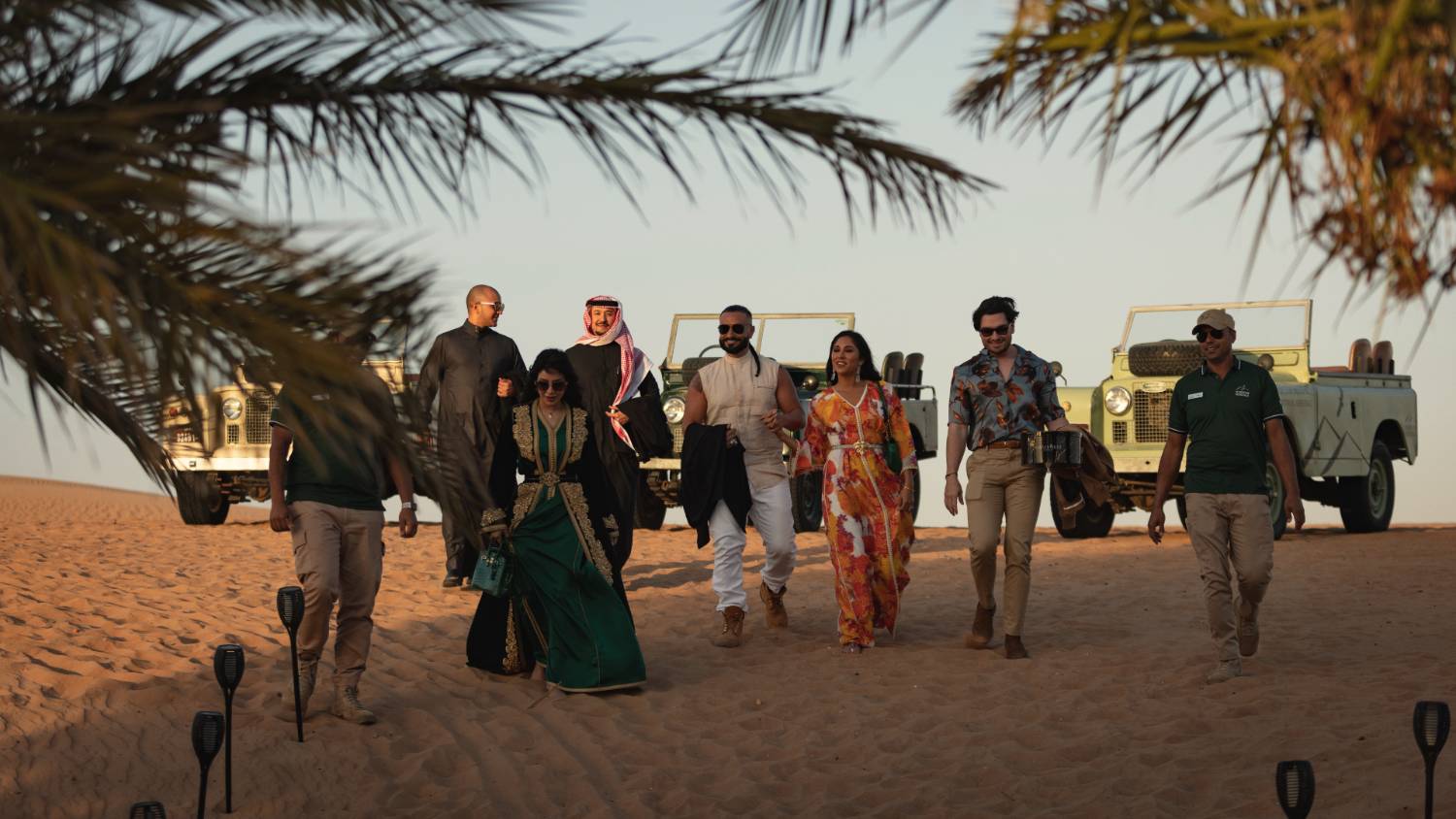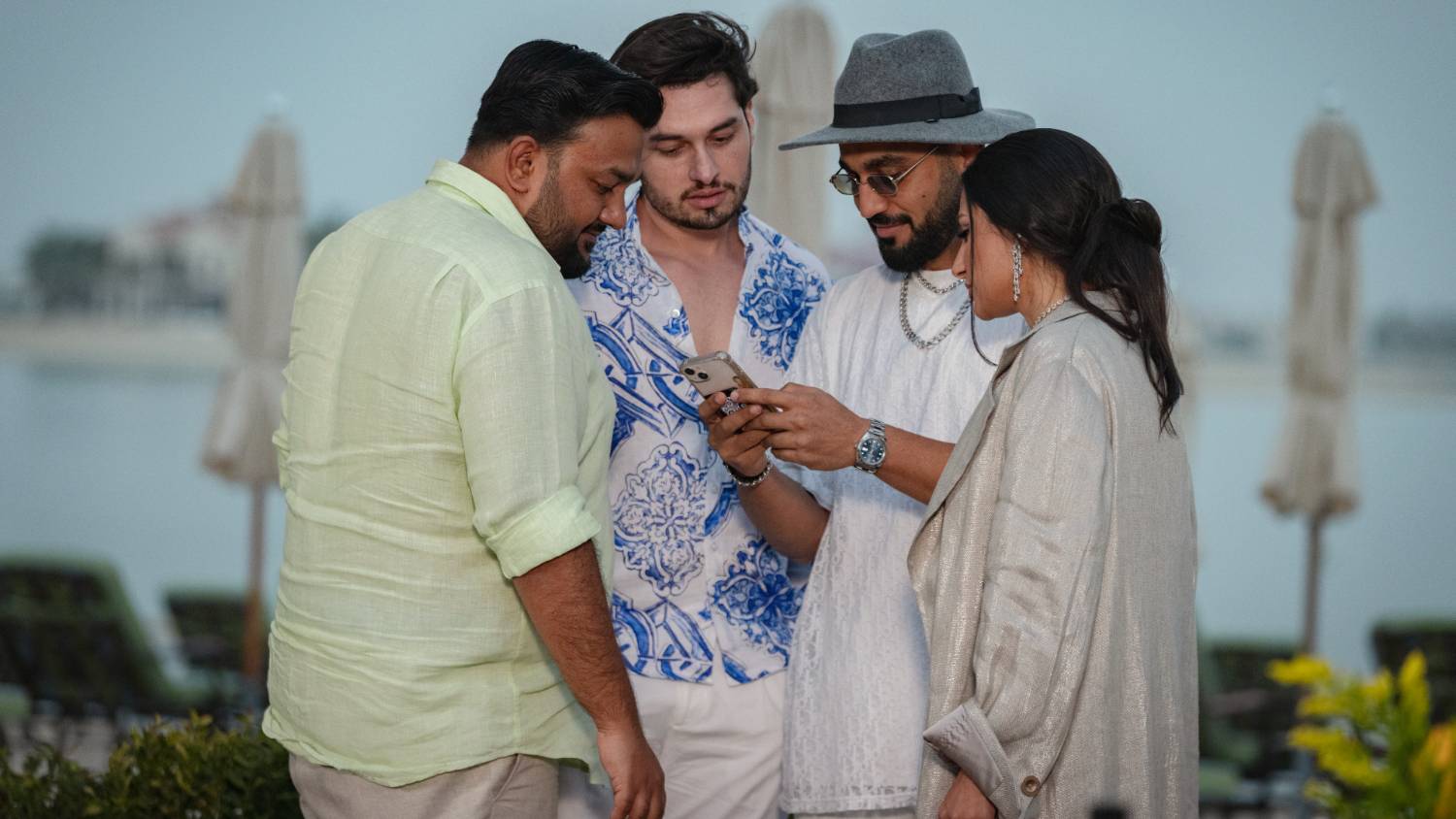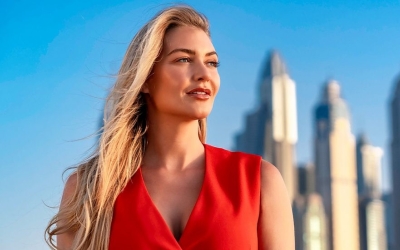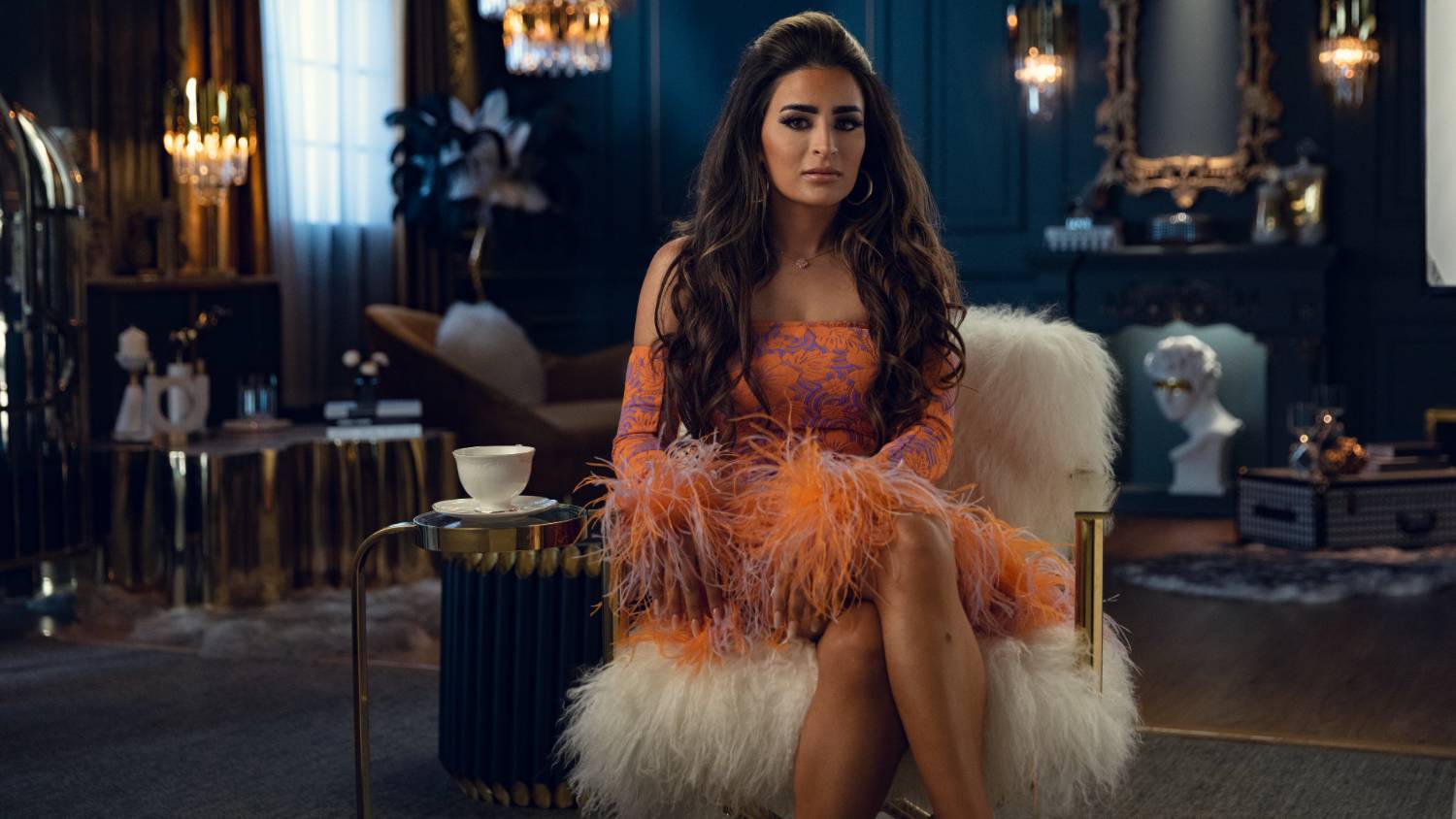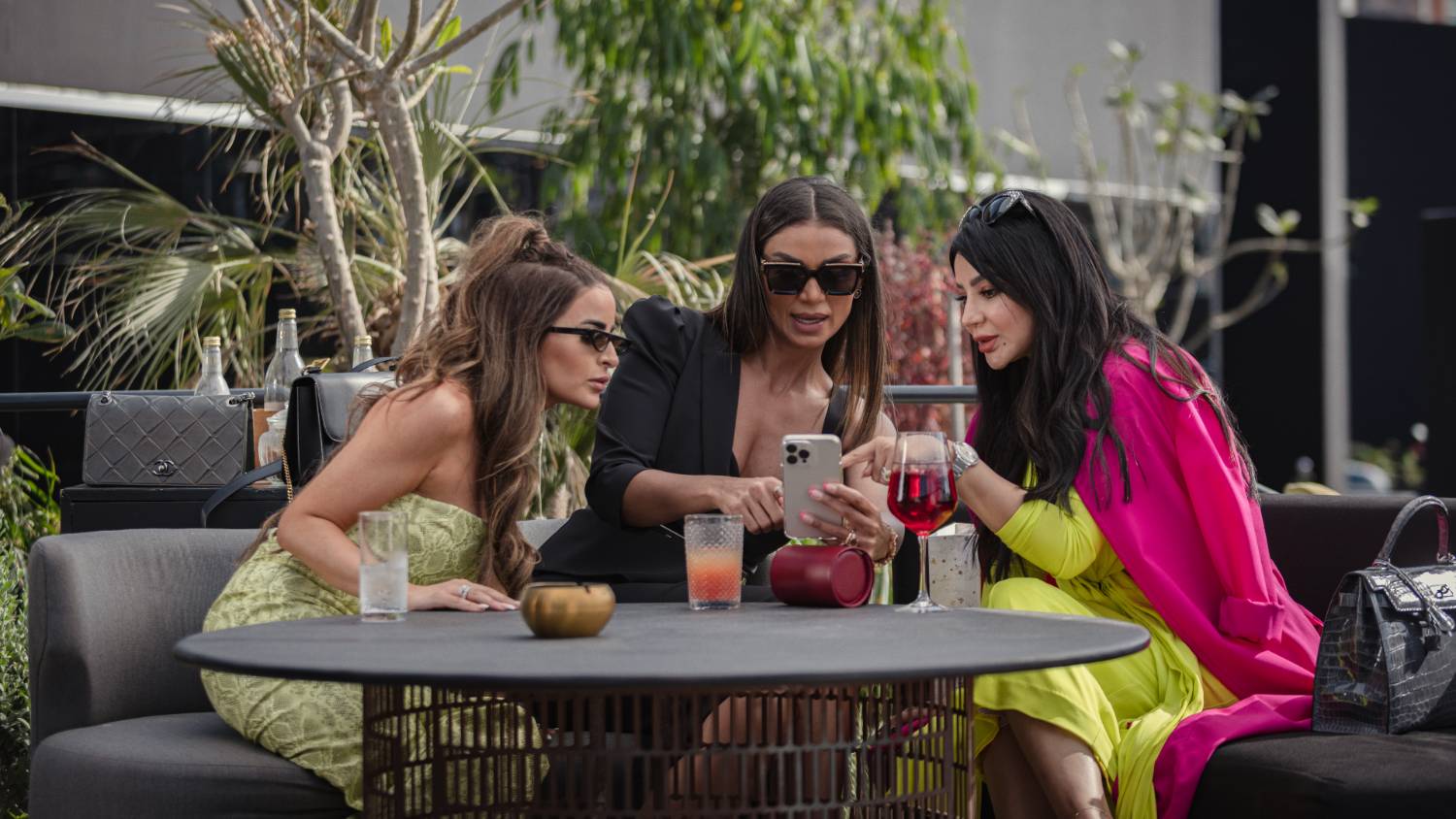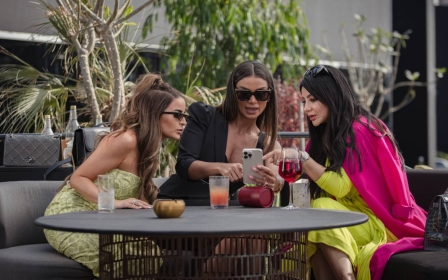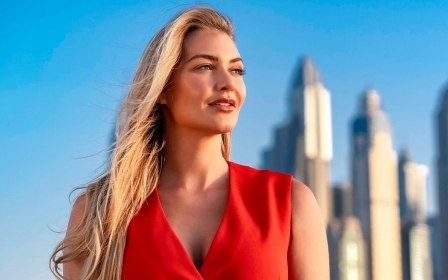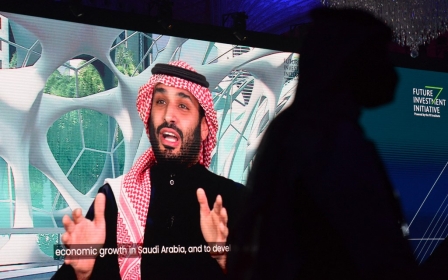Dubai Bling: Glitz, glamour and the shallow lives of the nouveau riche
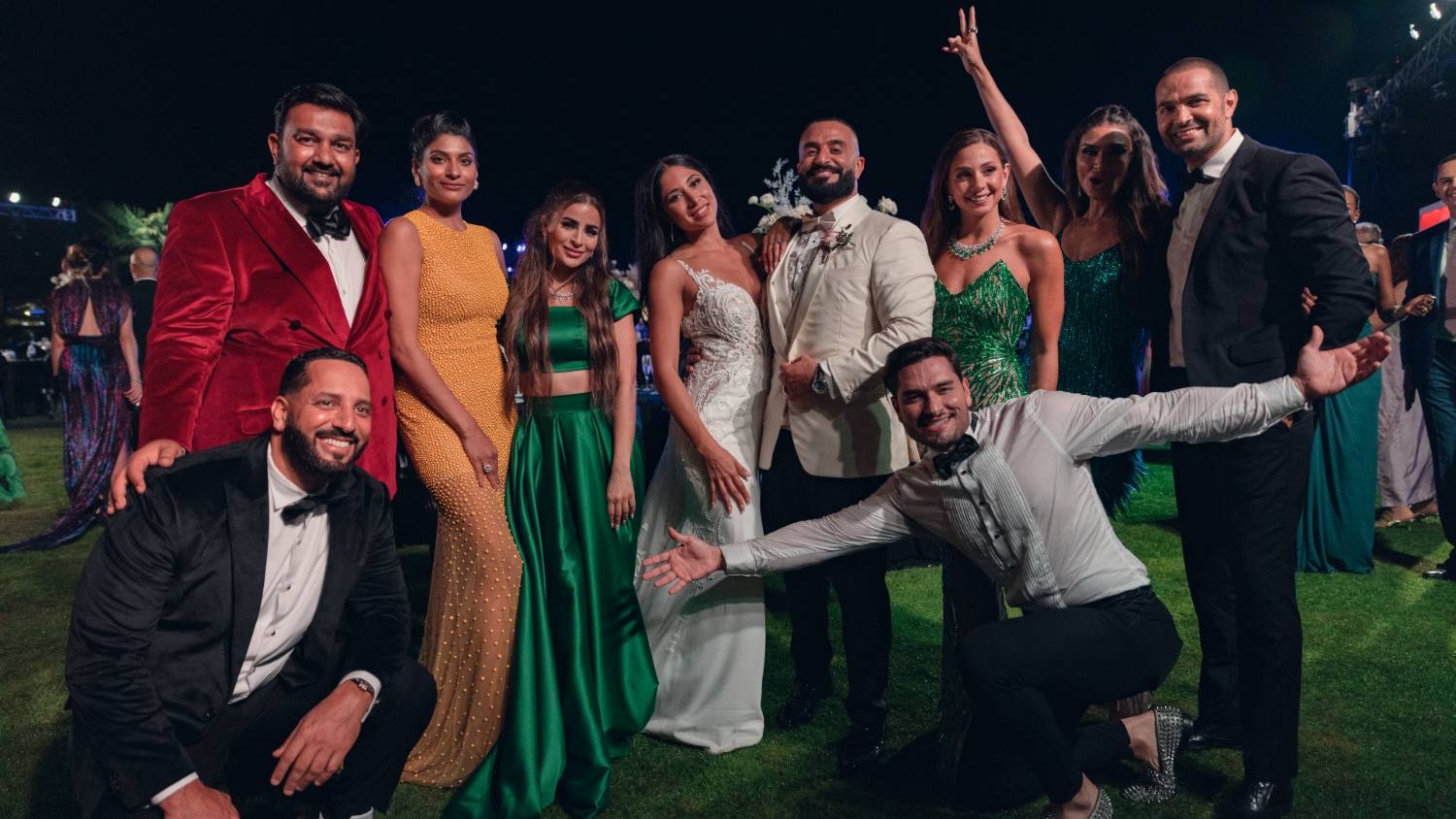
To come clean from the get-go, this writer is not a reality TV fan despite consuming countless hours of the genre.
I also realise that Dubai Bling, Netflix’s new reality show about the lives of Dubai’s millionaires, is not catered to viewers like me; nor does the streaming giant expect positive reviews for what is a knowingly formulaic piece of trash TV.
But beyond the kitschy aesthetics and facile narrative lies a fascinating look at the untold reality of Dubai and the image the emirate has long projected of itself.
Anchored by some of the stupidest millionaires in the city, Dubai Bling is a tour de force of capitalism on steroids, created by an American network with baffling apathy to the reality of the region.
Episode one, perceptively titled “Habibi, Welcome to Dubai,” introduces the show’s exceedingly daft protagonists.
Most irritating is Loujain Adada, or LJ, because everyone in the series must have an Americanised acronym.
The Lebanese widow of a Saudi tycoon who has moved to Dubai with her two children following his premature death, LJ is portrayed as the dumb blonde personified: a vain gold-digger fixated on the mother who left her and moved to the US when she was a toddler for reasons unknown.
In episode one, LJ goes on a blind date with an equally irritating young entrepreneur, Ebraheem al-Samadi, the American-Kuwaiti owner of a successful company called Forever Roses which specialises in…err…roses.
When not managing his demanding business or tending to his docile white American mother, Samadi spends his days indulging in gossip and switching between the different feuding factions of the cast.
Of the various couples in the show, the oddest is the excessively Americanised pair Marwan al-Awadhi, aka DJ Bliss, and Danya Mohammed, aka "Diva Dee!"
Bliss, as he’s called by his friends, is a talentless music producer who walks and talks like a cheap Hollywood caricature of an African-American male.
Danya is a housewife who seems more preoccupied with unearthing the real motivations behind her husband’s decision to have six-pack surgery than giving her children a decent education.
And for some mysterious reason, the pair never speak to each other in Arabic, even though their English is not as refined as they think it is.
Less grating if not brighter are Australian-Lebanese radio host and entrepreneur Kris Fade and his Mexican-American fiancee Brianna, aka "B!" Kris is an amiable, level-headed chap with no discernable skill and a passion for cringeworthy outbursts. (He flips out when he discovers that his friend's husband is out of town on Valentine’s Day!).
More intriguing are British-Iraqi housewife Safa Siddiqui and her Indian businessman husband Fahad - everyone in the show is an entrepreneur of sorts.
Safa is petrified about having another baby and damaging her petite physique, directing her attention instead to the launch of a new fashion line. Fahad may be obliging, but his bottled-up anger casts an ominous shadow over their marriage, and that’s practically the sole interesting plotline in the show, even if it predictably amounts to nothing.
Least dimwitted of the bunch are Zeina Khoury, the Lebanese CEO of luxury real estate company High Mark, and Lojain Omran, the Saudi TV presenter turned actress. Both women seem relatively reasonable compared to the other cast members, yet their propensity for drama, luxury and tackiness are in line with the rest of the sorry lot.
And then there’s Farhana Bodi, a single mother and an Indian influencer with two million followers on Instagram. Farhana is the reality TV star personified: characterless fodder for product placements with no human relationships.
Cultural anthropology
Reality TV is a wholeheartedly American invention that dates as far as 1973 with the groundbreaking An American Family by PBS, an examination of the daily lives of the ultra-rich Californian Loud family.
An American Family set the template for the genre: the fetishisation of wealth and excess, dysfunctional familial relationships, and the embrace of consumerism.
Nevertheless, the real explosion of reality TV commenced with 1992's The Real World, MTV’s smash hit series which made headlines for its frank depiction of sexuality, religion, and substance abuse.
The show was sensationalist, intentionally outrageous, and cheap in sentimentality, but its exploration of hot-button issues rendered it a fascinating piece of cultural anthropology.
Each subsequent reality TV phenomenon, be it Big Brother, Real Housewives, or Love Island, reflected the particular realities of their times: modern relationships; shameless capitalism; changing attitudes to sex; the rise of individualism; and the commodification of art.
Reality TV has proven how we, both subjects and viewers, have regressed; its popularity is a byproduct of a global culture that is willing to see itself only in the crassest, most reductive light.
Increasing economic demands and the waning role of art and critical thinking have contributed to the popularity of the genre.
After a long day of work, you simply want to “switch off”.
Challenging art or thought is the last thing an average citizen is looking for. We all want a numbing experience; an under-nourishing fast food to help us cope with the hefty demands of work. We don’t want to intensely engage with what we’re watching: we just need the soothing empty stream of images to fall asleep to, and that’s the role reality TV has mostly come to occupy.
Dubai Bling is not the first Arab reality TV show, a distinction owed to 2003's Star Academy. Various other shows popped up over the years, including Hiya Wa Huwa (Her and Him), the little-watched Saudi series chronicling the life of actress Aseel Omran (Lojain’s younger sister) and her husband Khaled al-Shaer.
For the most part, Arab reality TV never really descended into the full-on trashiness of its American and British counterparts, always shackled by censorship and thus revealing far less about its surroundings.
Netflix's Dubai
Dubai Bling is more vacuous, even by reality TV standards. The toothless, if revealing, social observations that attracted academics to the genre are nowhere to be found here.
Netflix’s Dubai is a grand playground for ambitious entrepreneurs and air-headed housewives alike: an eternally sunny paradise devoid of race or class problems; a multicultural hub where anyone from anywhere can make it.
In other words, it’s the image Dubai has long projected of itself, an image Netflix happily and blindly propagates.
Here, you never encounter the underclass of Filipinos and Pakistanis, among others, trying to support their families back home; you never meet the unhappy expats smothered by the hollow grandiosity and artificiality of the city; you never meet the queer Arab forced to hide in the closet…you never meet anyone who doesn’t think that life at the Emirate is fantastic.
Like many reality TV series, Dubai Bling is clearly staged (despite assertions to the contrary), but the staging here is designed to conceal the unflattering realities of the city.
For outsiders, Dubai may feel like a cipher – the Arab Las Vegas only glimpsed in advertising. That’s because barely any movies or serials are allowed to genuinely document the intricate reality of a place teeming with contradictions.
Various attempts to establish a film industry in the UAE have floundered. The cancellation of the Dubai and Abu Dhabi film festivals signalled a state disinterest in creating a robust film scene that was bound to turn political and cause the government a headache.
Aesthetically speaking, TV production is stagnant, continuing to churn out harmless Ramadan serials strictly catered to older local viewers. The lack of space for potent criticism and free expression in manifested in the country’s failure to produce any film – with the sole exception of Nawaf al-Janahi’s Sea Shadow (2011) – that has made a splash in international circuits.
For millions of disadvantaged Arabs struggling with the twin forces of dire economic conditions and religious conservatism, Dubai emerged at the beginning of the century as an oasis of liberty: a multicultural hub bearing few Arab norms; a place where people from every nation and race could live harmoniously, as they steadily march to achieve the capitalist promise of amassing wealth.
Prosperity and freedom are achievable, the world has discovered, as long as you don’t question the authority of the ruling family; as long as you’re not a migrant worker, or a human rights advocate; as long as you’re not openly queer.
Reaffirming stereotypes
Dubai Bling predictably doesn’t delve into politics, painting a dull, surface-level portrait no different from the tedious advertisements you see in airplanes.
Nor does it illustrate the virtues of the city: the thriving art and literary scene; the absence of religious discrimination; the estimable work ethic. Instead it sells the dream that any half-talented goon with good looks, connections, or a family fortune can make it big.
Any criticism of the show’s aesthetics is pointless – Dubai Bling does not pretend to be anything but trash. Its reductive, propagandist depiction of the city aside, the show’s biggest transgression is in its conservative politics and palpable anti-feminism.
Like most reality TV shows, Dubai Bling reaffirms female stereotypes: the dumb blonde, the insanely rich Saudi, the gold-digger, the jealous Arab housewife; the Indian chatterbox.
All of the women subjects chosen for the show are obsessed with their image, obsessed with their wealth; obsessed with gossip; obsessed with their bodies. They’re catty, phony, unsophisticated and unbearable to watch.
On top of it all, and despite its reluctance to delve into religion, the show promotes bafflingly conservative norms. Safaa’s desire for surrogacy is instantly shot down by her friends whose religious side suddenly emerges. Premarital sex is absent in Bling’s Dubai, and so is agnosticism.
Neither the show-makers nor the characters advocate any progressive ideals. Unbridled freedom is not what Dubai is about, the show suggests: Dubai is most fitting for raising families in contained, safe environments. Dubai, in that sense, is the Arabic equivalent of America’s suburbia: a stifling habitat governed by conformist principles no citizen is allowed to deviate from.
In the strangest twist of the show, Dubai Bling bathes one of its principal characters in a consistent stream of queer iconography that possibly alludes to his closeted sexual orientation.
Nothing is explicitly divulged, masking this subplot with a tint of sadness and eeriness. It also intentionally renders the character the laughing stock of the series – a spectacle to be mocked and sneered at.
And given how queerness remains a taboo and a criminal offence in the UAE, one can’t tell if the man is indeed queer or if the affair is essentially queerbaiting.
Willfully outlandish
Time and time again, reality TV has laid bare the worst of humanity. Some of the subjects of the show, Khoury and Omran in particular, do not seem as dense as the others, but they all willingly participate in this buffoonery for…more money? More fame?
The characters spend a considerable part of the show crying for the most trivial reasons; all show a great ignorance of their privileges; all are happy to turn their backs on the more pressing realities around them; all dress up in the most ridiculously outlandish manner. All are happy to have viewers laugh at their expense.
Dubai Bling fulfils a very base desire for the average middle-class viewer: to make them feel superior to these rich but unintelligent folks
Since it dropped on 27 October, Dubai Bling has been one of the top 10 most-watched shows on Netflix, not only in the region but worldwide, becoming an unlikely breakthrough Arab hit. With a 3.2 rating on IMDB, viewers don’t seem to rate Dubai Bling highly, yet the quality of the show has not deterred audiences.
After all, Dubai Bling fulfils a very base desire for the average middle-class viewer: to make them feel superior to these rich but unintelligent folks.
The Dubai millionaires may have the best cars and houses and clothes, but their lives are as soulless as the city they inhabit. The glamour rapidly subsides, becoming increasingly redundant, monotonous and dispiriting.
The bulk of Netflix’s original Arab productions have been set in upper-class milieus. In contrast to MBC’s Shahid platform, Netflix's primary competitor in the region, Netflix has shown a peculiar indifference to middle-class Arab lives.
Dubai Bling is another case in point, and judging by the surprising success of the show – a Saudi spin-off is currently being considered – a change in direction is not expected anytime soon.
Middle East Eye delivers independent and unrivalled coverage and analysis of the Middle East, North Africa and beyond. To learn more about republishing this content and the associated fees, please fill out this form. More about MEE can be found here.


